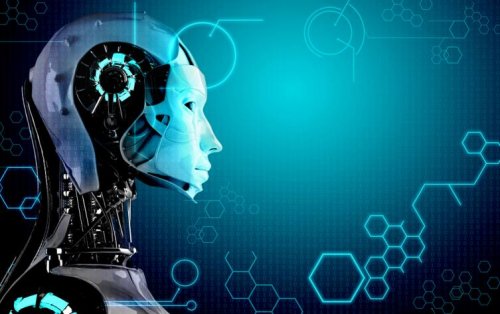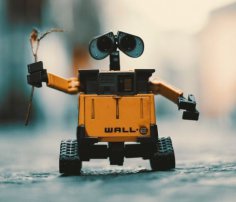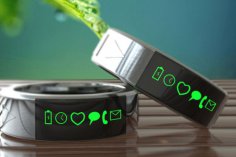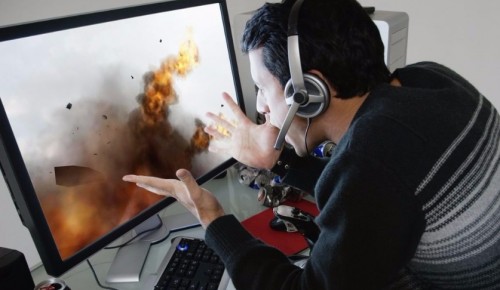
We have entered the third millennium, a year that could determine whether human civilization will exist or not. Science fiction writers, scientists, and philosophers present us with possible scenarios and forecasts for the future.
I don't want to be a pessimist, but given human nature, one can imagine a worse-case scenario—the destruction of humanity. Death not from a man-made disaster, a pandemic caused by some artificially created virus, a collision with a celestial body, etc. But death from one's own ambitions, permissiveness, and a blind confidence in one's own infallibility.
Despite all the intelligence given to us by nature (the Creator), we are, for the most part, dependent on the power of wealth and authority. Perhaps this is the greatest test given to man.
And so, remembering this, hope arises: in addition to pure reason, man has a soul. And if human society is spiritually strong, it will follow the right path and live out its allotted time, rather than end its life by self-destruction.
What prompted these thoughts? First, I studied information about the Asgardia project—the first spacefaring nation. Personally, I'm more drawn to the idea of uniting all nations into a single terrestrial state, capable of making informed decisions to extend the life of our planet, and along with it, us, its children.
But when I read about Saudi Arabia granting citizenship to the android robot Sophia, Asgardia seemed like a mere bud, not even a flower. The motives of the kingdom's authorities in issuing an ID to a robot are unclear. In a country where women's rights are minimal, where a woman has no right to any civil actions without the consent of a male guardian, they grant such powers to an android posing as a woman.
How should we assess this move: a large-scale PR stunt, sheer shortsightedness, or a wise move? Just think, people, how far have you come?! Michael Whelan, “Robot Looks at the Sky”
Before getting to know the newly minted Saudi Arabian citizen in more detail, I'd like to remind readers of the three laws of the renowned American science fiction writer Isaac Asimov, which should guide creators of artificial intelligence and humanoid robots. These laws state:
1. A robot may not injure a human being or, through inaction, allow a human being to come to harm.
2. A robot must obey all orders given by human beings except where such orders would conflict with the First Law.
3. A robot must protect its own safety as long as this does not conflict with the First and Second Laws.
Asimov's laws were first articulated in 1942. Today, Ohio State University professor David Woods and his University of Texas colleague Robin Murphy, taking into account recent advances in robotics, have interpreted Asimov's laws as follows:
1. A person may not use a robot without a human-robot interaction work plan that is based on high legal and professional standards in the field of safety and ethics.
2. The robot must respond to people depending on their role.
3. A robot must be given sufficient autonomy of action to protect its own existence as the situation demands, so long as such autonomy ensures a smooth transfer of control that does not conflict with the First and Second Laws.
These laws place significant responsibility on humans for the creation and activation of robots, but from a legal perspective, different interpretations may arise when dealing with unusual situations.
Let's return to the robot Sophia. She was created and activated in China in 2015. Sophia is classified as a humanoid robot in the form of a woman. Her purpose is to adapt to human behavior and communicate with them.
Over the past two years, Sofia has participated in numerous meetings and press conferences in numerous countries, including a meeting with the UN Deputy Secretary-General. In October of this year, she became a citizen of the Kingdom of Saudi Arabia.
Sophia's creator, David Hanson, an employee of the Hong Kong-based company Hanson Robotiks, notes that his creation possesses artificial intelligence, can hold conversations on specific topics, recognize faces, imitate human gestures, and display over 60 emotions. The program includes conversation analysis, allowing the robot to improve. David Hanson also hopes that over time, Sophia will develop social skills and be able to fully communicate with people.
Similar robots are being actively developed in Japan, the USA, Germany and other countries.
In conclusion, I'd like to share the thoughts of renowned physicist Stephen Hawking. He believes that a time will come when robots will replace humans, leaving humans with only one option: to seek refuge on other planets. He also notes the current fascination with artificial intelligence technologies.
It's noteworthy that the scientist speaks of pure passion, rather than a conscious, responsible approach to this area of modern science. It may be that robots will be able to independently improve and reproduce.
This will be a new form of life. And since it was created by humans, whose nature is one of aggression, the destruction of their own kind for the purpose of enrichment, territorial conquest, and so on, the conclusion is obvious.
Stephen Hawking believes that humanity should focus its efforts on exploring and colonizing other planets, as Earth's resources are drastically depleting and in the near future the Earth will not be able to feed its inhabitants.





